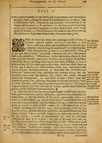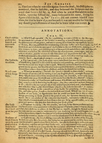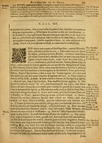At the request of his mother he worketh his first miracle, turning water into wine at a marriage in Galilee, although the time of his manifestation be not yet come. (12) Then in Jerusalem at Pasch, being but one, and yet obscure, he throweth out of the Temple most miraculously all the merchants. (18) And being yet of the blind Jews asked a sign, he signifieth so long before, that they should kill him, but he will rise again the third day. (23) Which also presently they would do, but that he knowing their false hearts (though many believe in him) will not tarry among them.
AND the third day there was a marriage made in Cana of Galilee; and the mother of Jesus was there. 2And • Jesus also was called, and his Disciples to the marriage. 3And the wine failing, the mother of Jesus saith to him: • They have no wine. 4And Jesus saith to her: • What is to me and thee woman? my hour cometh not yet. 5His mother saith to the ministers: • Whatsoever he shall say to you, do ye. 6And there were set there six water-pots of stone, according to the purification of the Jews, holding every one two or three measures. 7Jesus saith to them: Fill the water-pots with water. And they filled them up to the top. 8And Jesus saith to them: Draw now, and carry to the chief steward. And they carried it. 9And after the chief steward tasted the [a] water made wine, and knew not whence it was, but the ministers knew that had drawn the water; the chief steward calleth the bridegroom, 10and saith to him: Every man first setteth the good wine: and when they have well drunk, then that which is worse. But thou hast kept the good wine until now. 11This beginning of miracles did Jesus in Cana of Galilee; and he manifested his glory, and his Disciples believed in him.
12After this he went down to Capharnaum himself and his mother, and his brethren, and his Disciples; and there they remained not many days. 13And the Pasch of the Jews was at hand, and Jesus went up to Hierusalem; 14and he found in the Temple them that sold oxen and sheep and doves, and the bankers sitting. 15And when he had made as it were a whip of little cords, he • cast them all out of the Temple, the sheep also and the oxen, and the money of the bankers he poured out, and the tables he overthrew. 16And to them that sold doves, he said: Take away these things hence, and make not the house of my Father, a house of merchandise. 17And his Disciples remembered that it is written: The zeal of thy house hath eaten me. 18The Jews therefore answered and said to him: What sign doest thou show us, that thou doest these things? 19Jesus answered and said to them: * Dissolve this temple, and in three days I will raise it. 20The Jews therefore said: In forty and six years was this Temple built, and wilt thou raise it in three days? 21But he spoke of the temple of his body. 22Therefore when he was risen again from the dead, his Disciples remembered, that he said this, and they believed the scripture and the word that Jesus did say. 23And when he was at Jerusalem in the Pasch, upon the festival day, many believed in his name, seeing his signs which he did. 24But • Jesus did not commit himself unto them, for that he knew all, 25and because it was not needful for him that any should give testimony of man; for he knew what was in man.
Footnotes
- ↑ He that seeth water turned into wine, needeth not dispute or doubt how Christ changed bread into his body.
ANNOTATIONS. CHAP. II.
↑ 2. JESUS also was called.) By his vouchsafing to come with his to the Marriage, he approveth the custom of the faithful in meeting at honest feasts and recreations for maintenance of love, peace, and amity among themselves: he reproveth the heresy of Tatian, Marcion, and such like condemning wedlock: lastly (as St. Cyril saith) he sanctifieth and blesseth the Marriage of the Faithful in the new Testament, making it a new creature in him, and discharging it of the manifold maledictions and disorders wherein it was before. By which benediction the often divorces, remarriages, and pluralities of wives, and the women’s servile subjection and imparity in that case, be redressed and reduced to the primitive institution, and so Christian marriage made a Sacrament. See St. Aug. de nupt. and concup. lib. 1 ch. 10 and 21. lib. 1 de adult. conjug. c. 8.
↑ 3. They have no wine.) Our Lady many ways understood that now the time approached of manifesting himself to the world by miracles and preaching, and nothing doubted but that he would now begin at her request. Whereby we learn that Christ ordinarily giveth not his graces, but humbly asked and requested thereunto; and that his mother’s intercession is more than vulgarly effectual, and that he denieth her nothing.
↑ 4. What is to me and thee?) Because this speech is subject to diverse senses, we keep the words of our text, left by turning it into any English phrase, we might straiten the Holy Ghost’s intention to some certain sense either not intended, or not only intended, and so take away the choice and indifference from the Reader, whereof (in holy Scripture specially) all Translators must beware. Christ then may mean here, what is that, woman, to me and thee being but strangers, that they want wine? as some interpret it. Or (which is the more proper use of that kind of speech in holy writ) what have I to do with thee? That is, why should I have respect to thy desire in this case? in matters touching my charge and the commission of my Father for preaching, working miracles, and other graces, I must not be tied to flesh and blood. Which was not a reprehension of our Lady, or signification that he would not hear her in this or other things pertaining to God’s glory or the good of men, for the event showeth the contrary. But it was a lesson to the company that heard it, and namely to his Disciples, that respect of kindred should not draw them to do any thing against reason, or be the principal motion why they do their duties, but God’s glory.
↑ 5. Whatsoever he shall say.) By this you see, our Lady by her divine prudence and entire familiarity and acquaintance with all his manner of speeches, knew it was no check to her, but a doctrine to others: and that she had no repulse, though he seemed to say his time was not yet come to work miracles: not doubting but he would begin a little before his ordinary time for her sake, as St. Cyril thinketh he did: and therefore she admonisheth the waiters to mark well, and to execute whatsoever Christ should bid them do.
↑ 15. Cast them out.) By this chastising corporally the defilers and abusers of the Temple, he doth not only show his power, that being but one poor man he could by force execute his pleasure upon so many sturdy fellows: but also his sovereign authority over all offenders; and that not upon their souls only, as by excommunication and spiritual penalties, but so far as is requisite for the execution of spiritual jurisdiction, upon their bodies and goods also. That the Spiritualty may learn, how far and in what cases, for just zeal of Christ’s Church, they may use and exercise both spiritually and temporally their forces and faculties against offenders, specially against the profaners of God’s Church, according to the Apostles’ allusion 1 Cor. 3. If any defile the Temple of God, him will God destroy.
↑ 24. JESUS committed not himself.) St. Augustine applieth this their first faith and belief in Christ, suddenly raised upon the admiration of his wonders, but yet not fully formed or established in them, unto the faith of Novices or Catechumens in the Church and Christ not committing his Person to them as yet, to the Church’s like wariness and wisdom, in not opening nor giving to them our Lord in the Bl. Sacrament, because all were not to be trusted with that high point without full trial of their faith.
Margin Notes
- 1–11. The Ghospel upon the 2nd Sunday after the Epiphany.
- 13–25. The Ghospel upon Monday in the fourth week of Lent.
- annot. 2. Christ with his presence honoureth and approveth Marriage.
- annot. 3. Our Lady’s intercession.
- annot. 4. Translators of holy Scriptures.
- annot. 5. Our Lady doubteth not but Christ will grant her petition.
- annot. 15. Profaners of God’s Church are to be punished in soul and body by the Spiritual power.
- annot. 24. The Bl. Sacrament is not to be given to novices or younglings, in faith.
Margin References
- 17. Ps. 68, 10.
- 19. Mt. 26, 61. 27, 40.
- annot. 2. Cyril in 2. Joh. ch. 42.
- annot. 5. lib. 2. in Joh.ch. 23.
- annot. 24. Tract in Joh. 11.



